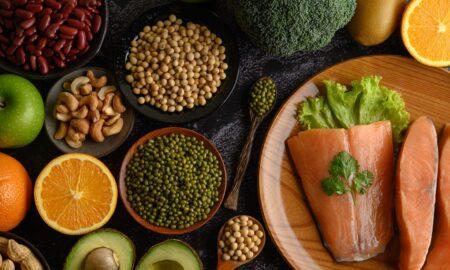Recent studies investigating the effect of high-protein meals on cortisol levels raise serious doubts about low-carb diets and their related ketogenic diets.
Ironically, the high-protein/low-carb approach that aims to promote lean muscle gain and/or fat loss may cause exactly the opposite effect. Protein-rich food increases the level of the stress hormone cortisol. Elevated cortisol is also associated with a cascade of severe metabolic impairments, including insulin resistance, muscle waste and fat gain (in particular abdominal fat).
Enhanced cortisol release after protein meals was recently investigated by researchers at the University of Lubeck in Germany. The study's results, published in the Journal of Clinical Endocrinology and Metabolism, reveal that intake of hydrolyzed, or predigested, proteins has a more profound cortisol-promoting effect than whole-protein foods. That indicates that the grade of digestion of protein and the presence of certain free-form amino acids are likely the culprits that trigger a high-cortisol response to protein.
The study also revealed that cortisol secretion is increased only by oral protein intake and not by infusion. The researchers concluded that high-protein meals, in particular those enriched with hydrolyzed protein, trigger a pituitary-adrenal response that subsequently increases cortisol levels. [Editor's note: Other studies have shown that taking essential amino acids with no additional carbs blunts cortisol; however, any cortisol increase that does occur appears to be insufficient to produce a catabolic effect on muscle. See page 60 for other studies on the benefits of amino acid supplements.]
Do all fast-releasing protein meals raise cortisol? The answer is no, quite the opposite. Numerous studies have demonstrated that combining protein with carbs helps negate the cortisol effect. Insulin is generally a potent cortisol blocker and partly contributes to its overall anabolic effect. Recent studies at the Department of Internal Medicine of the University of Texas in Galveston show that supplementing fast-releasing protein or essential amino acids with carbs (in particular simple carbs) has a substantial anabolic effect on net muscle protein synthesis, even in cases of highly elevated cortisol (hypercortisolemia due to prolonged inactivity). [For more, see the interview with John Ivy, Ph.D., that begins on page 116.]
In practical terms, combining protein and carbs has a far superior anabolic effect to taking in protein alone. In other words, meat and potatoes are superior to meat alone. For recovery right after a workout you want to have meals that combine fast-releasing proteins such as whey with fast-releasing carbs. That way carbs will balance protein to help inhibit cortisol while inducing an immediate anabolic and anticatabolic effect in the muscle tissues.
Be sure to get simple carbs right after you train, when insulin sensitivity is at a peak. The meals that follow the initial postexercise recovery meal should also be balanced with slow-releasing carbs to prevent high insulin spikes and consequent insulin resistance. Note that whole dairy, legumes and nuts are protein-rich foods that are naturally balanced with slow-releasing carbs.
[Note: For a perfectly balanced postworkout supplement with fast carbs, fast protein and titrated creatine, try the X Stack. See page 166 or visit www.X-Stack.com.] IM
Editor's note: Ori Hofmekler is the author of the books The Warrior Diet and Maximum Muscle & Minimum Fat, published by Dragon Door Publications (www.dragondoor.com). For more information or for a consultation, contact him at [email protected], www.warriordiet.com or by phone at (866) WAR-DIET.




















You must be logged in to post a comment Login